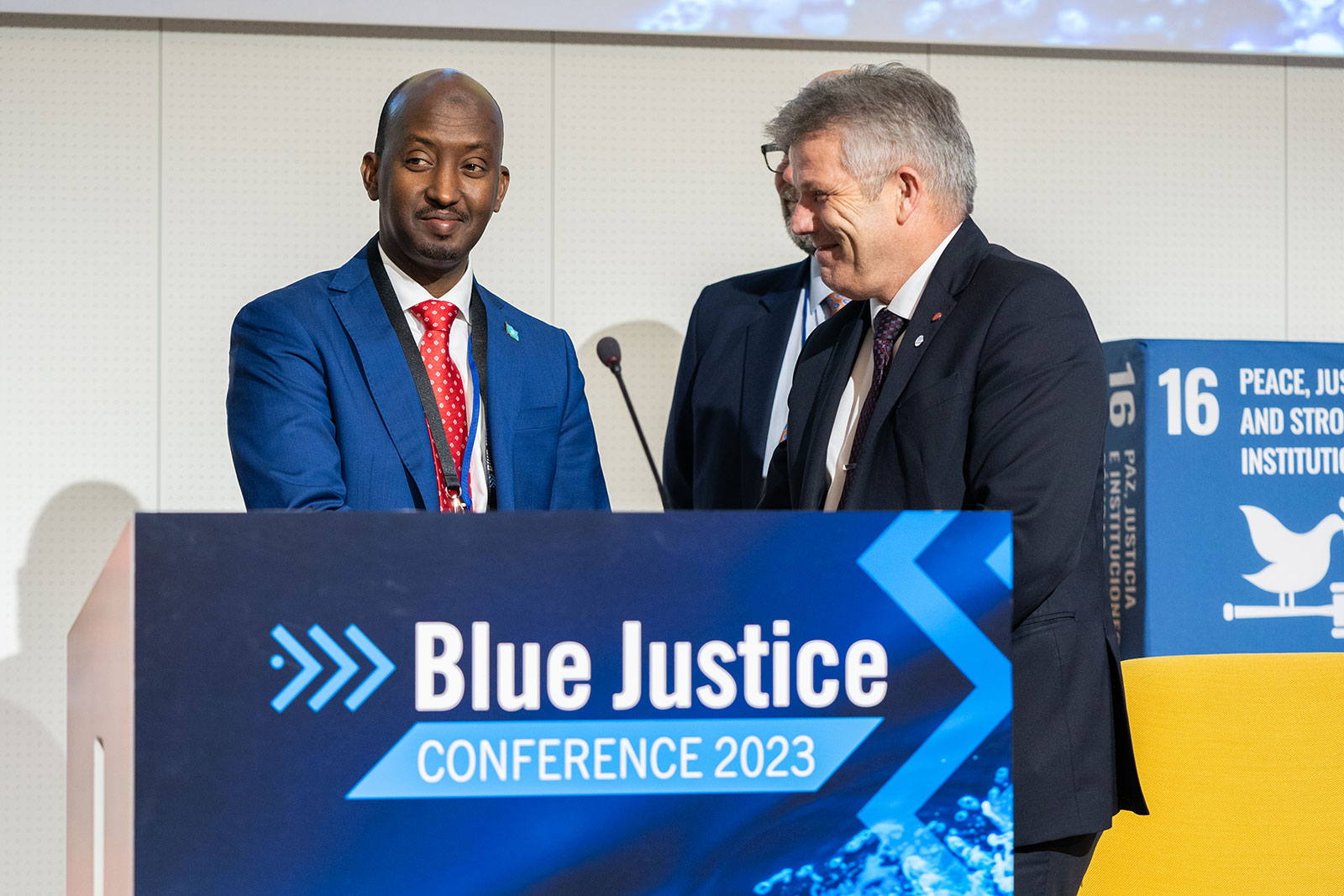
Active use of the Blue Justice Community platform bolsters an ongoing effort to reform and strengthen Somalia’s fisheries sector.
Kalaay Abdullahi Muhammad Ali, head of the MCS (Monitoring, Control and Surveillance department) in the Ministry of Fisheries and Blue Economy of the Federal Government of Somalia, expresses great satisfaction with the Blue Justice Community platform.
Benefits of Blue Justice
”As a developing country, we find support in the Blue Justice Community. It provides a platform for effective communication, building trust, providing access to knowledge, networks and technical support,” he says, highlighting the biweekly reports Somalia receives from the Blue Justice International Tracking Centre in Vardø.
“Blue Justice provides us with trusted data in real-time, better tracking, and data. It is well known that Somalia is facing illegal fishing, and we have the longest coast in Africa. Through the data made accessible through the community platform, we can identify which vessels are in the Somali exclusive economic zone and who are fishing illegally,” he says.
Somalia’s Vast Maritime Potential
The Somali coastline, stretching 3 300 km, is Africa’s longest, and the country’s exclusive economic zone spans more than a million square kilometres, brimming with tuna and tuna-like species. Somalia’s blue economy has the potential to boost the country’s economy significantly through activities including fisheries, aquaculture, tourism, shipping, and offshore oil and gas extraction.
Since the early 1990s, however, the country has been marred by illegal fishing by foreign fleets. The Somali government is dedicated to taking the necessary steps to draw greater benefits from its ocean wealth and has adopted several reforms to combat illegal fishing. This has resulted in significant reforms of Somalia’s fisheries legislation.
Reforms include stricter enforcement mechanisms, enhanced monitoring and surveillance systems, and the implementation of penalties for fisheries offences. The legislative changes are designed to protect Somalia’s marine biodiversity, promote sustainable fishing practices, and strengthen the capacity of local authorities to manage and conserve marine resources effectively.
Licensing System Overhaul
A key aspect of the fisheries legislation reforms has been the overhaul of the licensing system. The new licensing framework aims to increase transparency, reduce corruption, and ensure that fishing licences are granted based on sustainable and equitable criteria. The process now involves rigorous vetting of applicants, clear guidelines for licence issuance, and regular audits to ensure compliance with regulations. Data from the Blue Justice International Tracking Centre was instrumental in this reform.
Recent measures taken by Somalia are intended to attract responsible foreign investments, support local fishing communities, and prevent overfishing. By implementing these reforms, Somalia seeks to create a more sustainable and economically viable fisheries sector that benefits both the environment and its people. An additional step was joining the Copenhagen Declaration in 2023.
In order to fully make use of the technology offered by Blue Justice, however, training is key. This is something Kalaay hopes to see more of in the future.
Photo: Somalia joined the Copenhagen Declaration on 23 March 2023. Photo from Somalia’s participation in the 2023 Blue Justice Conference in Copenhagen. Somalia’s Minister of Fisheries and Blue Economy, shares the platform with Gunnar Stølsvik, Head of the Blue Justice Secretariat and Policy Director of the Norwegian Ministry of Trade, Industry and Fisheries, and the former Norwegian Minister of Fisheries and Ocean Policy Børnar Skjæran.
AI has been used to edit this web story.